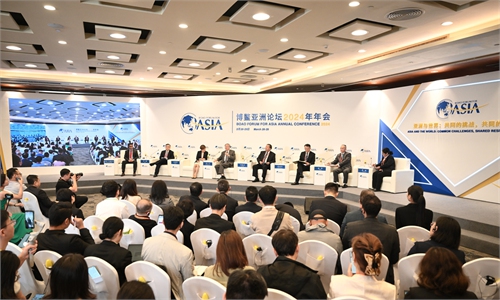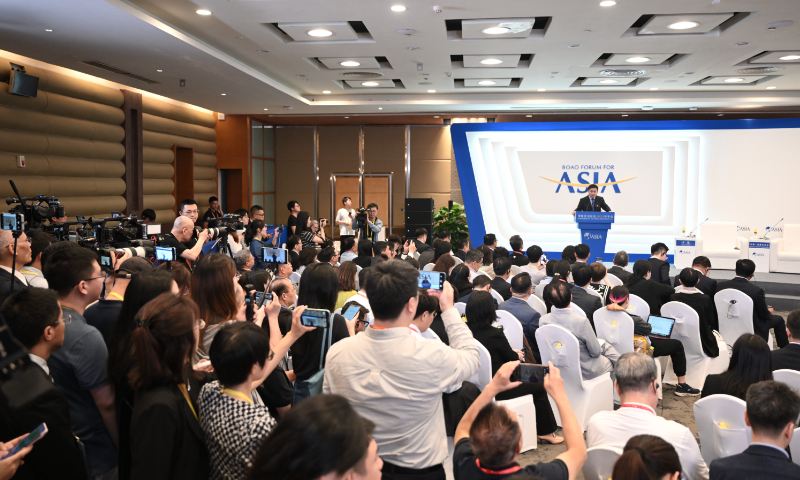Nvidia's grip on AI by targeting software.html
Alliance seeks to use alternative open source software
SAN FRANCISCO: Nvidia earned its US$2.2 trillion market cap by producing artificial-intelligence (AI) chips that have become the lifeblood powering the new era of generative AI developers from startups to Microsoft, OpenAI and Google parent Alphabet .
Almost as important to its hardware is the company’s nearly 20 years’ worth of computer code, which helps make competition with the company nearly impossible. More than four million global developers rely on Nvidia’s Cuda software platform to build AI and other apps.
Now a coalition of tech companies that includes Qualcomm, Google and Intel plans to loosen Nvidia’s chokehold by going after the chip giant’s secret weapon: the software that keeps developers tied to Nvidia chips.
They are part of an expanding group of financiers and companies hacking away at Nvidia’s dominance in AI.
“We’re actually showing developers how you migrate out from an Nvidia platform,” Vinesh Sukumar, Qualcomm’s head of AI and machine learning, said in an interview with Reuters.
Starting with a piece of technology developed by Intel called OneAPI, the UXL Foundation, a consortium of tech companies, plans to build a suite of software and tools that will be able to power multiple types of AI accelerator chips, executives involved with the group told Reuters.
The open-source project aims to make computer code run on any machine, regardless of what chip and hardware powers it.
“It’s about specifically – in the context of machine learning frameworks – how do we create an open ecosystem, and promote productivity and choice in hardware,” Google’s director and chief technologist of high-performance computing, Bill Magro, said in an interview.
Google is one of the founding members of UXL and helps determine the technical direction of the project, Magro said.
UXL’s technical steering committee is preparing to nail down technical specifications in the first half of this year. Engineers plan to refine the technical details to a “mature” state by the end of the year, executives said.
These executives stressed the need to build a solid foundation to include contributions from multiple companies that can also be deployed on any chip or hardware.
Beyond the initial companies involved, UXL will court cloud-computing companies such as Amazon.com and Microsoft’s Azure, as well as additional chipmakers.
Since its launch in September, UXL has already begun to receive technical contributions from third parties that include foundation members and outsiders keen on using the open-source technology, the executives involved said.
Intel’s OneAPI is already usable, and the second step is to create a standard programming model of computing designed for AI.
UXL plans to put its resources toward addressing the most pressing computing problems dominated by a few chipmakers, such as the latest AI apps and high-performance computing applications.
Those early plans feed into the organisation’s longer-term goal of winning over a critical mass of developers to its platform.
UXL eventually aims to support Nvidia hardware and code, in the long run.
When asked about the open source and venture-funded software efforts to break Nvidia’s AI dominance, Nvidia executive Ian Buck said in a statement: “The world is getting accelerated. New ideas in accelerated computing are coming from all across the ecosystem, and that will help advance AI and the scope of what accelerated computing can achieve.”
The UXL Foundation’s plans are one of many efforts to chip away at Nvidia’s hold on the software that powers AI. Venture financiers and corporate dollars have poured more than US$4bil into 93 separate efforts, according to custom data compiled by PitchBook at Reuters’ request.
The interest in unseating Nvidia through a potential weakness in software has ramped up in the last year, and startups aiming to poke holes in the company’s leadership gobbled up just over US$2bil in 2023 compared with US$580mil from a year ago, according to the data from PitchBook.
Success in the shadow of Nvidia’s group on AI data crunching is an achievement that few of the startups will be able to achieve.
Nvidia’s Cuda is a compelling piece of software on paper, as it is full-featured and is consistently growing both from Nvidia’s contributions and the developer community. — Reuters
RAELATED
Experts: Adapt to AI, don't fear it
Cook tells forum AI is key for climate battle
Prime Minister of the Netherlands Mark Rutte is on a working visit to China from Tuesday to Wednesday, at a time when the Netherlands' chip export policy has been in the spotlight. Chinese analysts pointed out that Rutte's visit is perfectly timed, as his country's largest company, the semiconductor equipment maker ASML, is seeking to expand outside the Netherlands after raising concerns about the country's business climate.
The Boao Forum for Asia (BFA) convened its annual conference in Boao, South China's Hainan Province on Tuesday, with officials and other participants calling for unity and cooperation in Asia and around the world to jointly tackle rising regional and global challenges, ranging from trade protectionism to geopolitical tension.
At Boao Forum, Asian central bank officials eye greater use of local currencies to fend off risks
Central bank officials and financial regulators from several Asian countries on Wednesday called for expanding currency swap arrangements through both bilateral and multilateral mechanisms to support cross-border trade and investment and reduce reliance on the US dollar, as part of the region's efforts to bolster financial safety nets and fend ...
Related posts
YTL AI Cloud to deploy advanced supercomputer
ts:









No comments:
Post a Comment